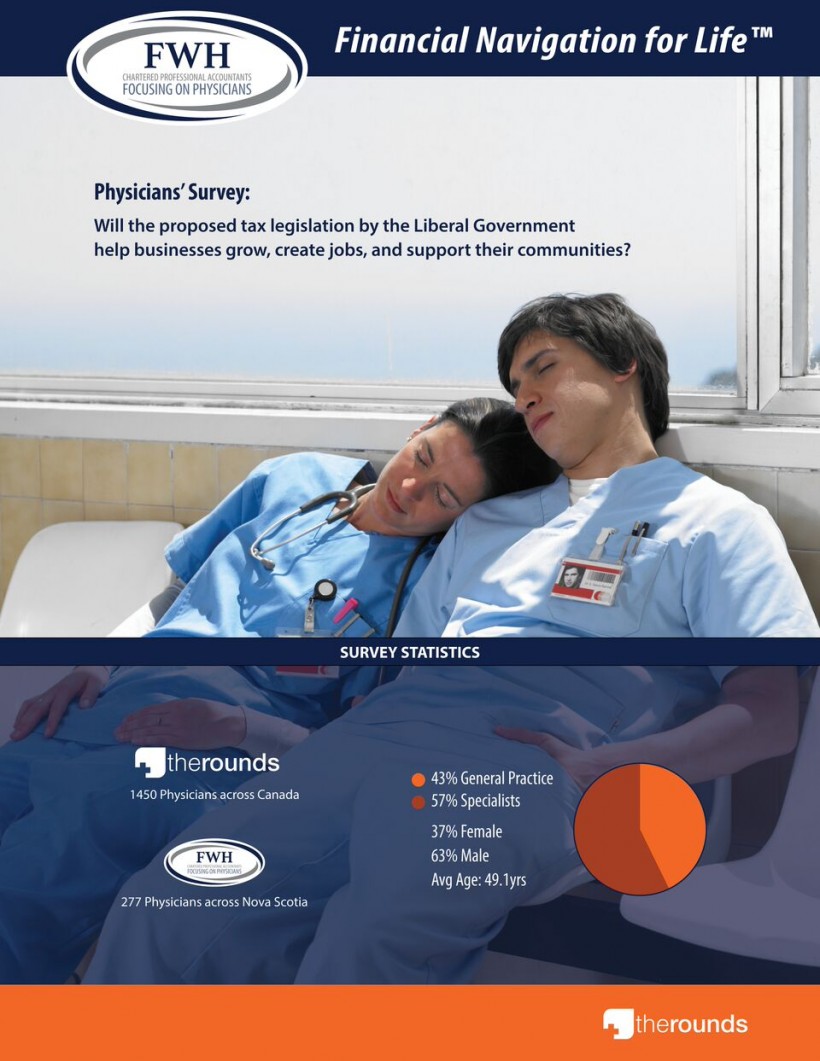Before discussing his survey of 1,450 physicians about tax reform, Blair J. Ryan was more than happy to discuss the financial success his company, Boondoc, has been enjoying lately.
Halifax-based Boondoc is best known as the holding company for The Rounds, a social network for Canadian physicians which was launched four years ago. Last year, Boondoc launched a sister organization called QID, which is an international network for pharmacists. The two Boondoc networks now have more than 60,000 members, more than half of them in 14-month-old QID. It makes money by selling corporations engagement with its members.
The group broke even in August, and has signed deals that will ensure that by January it will have monthly recurring revenue of $140,000. Ryan, the company’s CEO, expects monthly recurring revenue will increase by 20 to 30 percent per month throughout 2018.
“We’re all pretty excited,” said Ryan in an interview Monday. “We’re now officially a five-year-old company. For the first 80 percent of our existence we focused on growing engagement with our users. . . . Then in the last nine to 12 months we’ve had a shift in focus to tap into our big revenue opportunities.”
The purpose of the interview was to discuss a survey on tax reform that The Rounds had just conducted with Flaim Wolsey Hall, Atlantic Canada’s largest accountancy for physicians. They released the survey — which drew responses from 1,450 Canadian doctors, including 277 from Nova Scotia — last week and were delivering it to the Opposition leader’s office in Ottawa on Monday.
The respondents from across Canada overwhelmingly opposed the proposed tax reforms, which aim to close some loopholes employed by businesspeople and professionals who incorporate. Some 84 per cent of the doctors said the reforms, if implemented, would reduce the attractiveness of practising in Canada for new physicians, while 72 per cent foresaw a worsening shortage of doctors and 81 percent predicted longer wait times.
How Proposed Tax Reforms Would Affect Startups
Ryan said he was surprised by some findings, such as 65 per cent of the respondents saying they would give less to charities if the reforms go through. It shows, he said, that there could be unintended consequences of the reforms.
The Nova Scotian and Canadian results tend to be within a few percentage points of each other, with one notable exception. Across Canada, 18.9 percent of the respondents said they would leave their province if the proposals go through, but in Nova Scotia the figure was 41.2 percent.
“I think that’s got to do with a bunch of doctors who are already fed up with the amount of tax they have to pay,” said Ryan. “That’s conjecture but it is educated, as I have talked with these folks over time.”
More than the survey, Ryan is focused on growing his company in the coming year. The company, which has 13 employees, quietly raised $1.5 million in capital (70 percent of it from investors in the U.S.) last year, and intends to raise again in 2018.
In terms of operations, Ryan plans to increase sales and to sign up more users outside Canada, both for QID and The Rounds.
“It’s all about revenue growth within the Canadian market, and for the other parts we’re focusing on member growth outside of Canada,” he said. “The Rounds will be international in 2018, perhaps sooner.”
Key Findings of the National survey
If the proposed tax legislation goes through, what impact would this have on you?
Leave the Province 18.9%
Leave the Country 23.3%
Reduce likelihood of expanding our practice 49.4%
Look to the Province for help in recovering the losses incurred 45.0%
Reduce my work hours 55.8%
Reduce community support (e.g. charities) 64.4%
Number of respondents: 1450 Canadian physicians.










